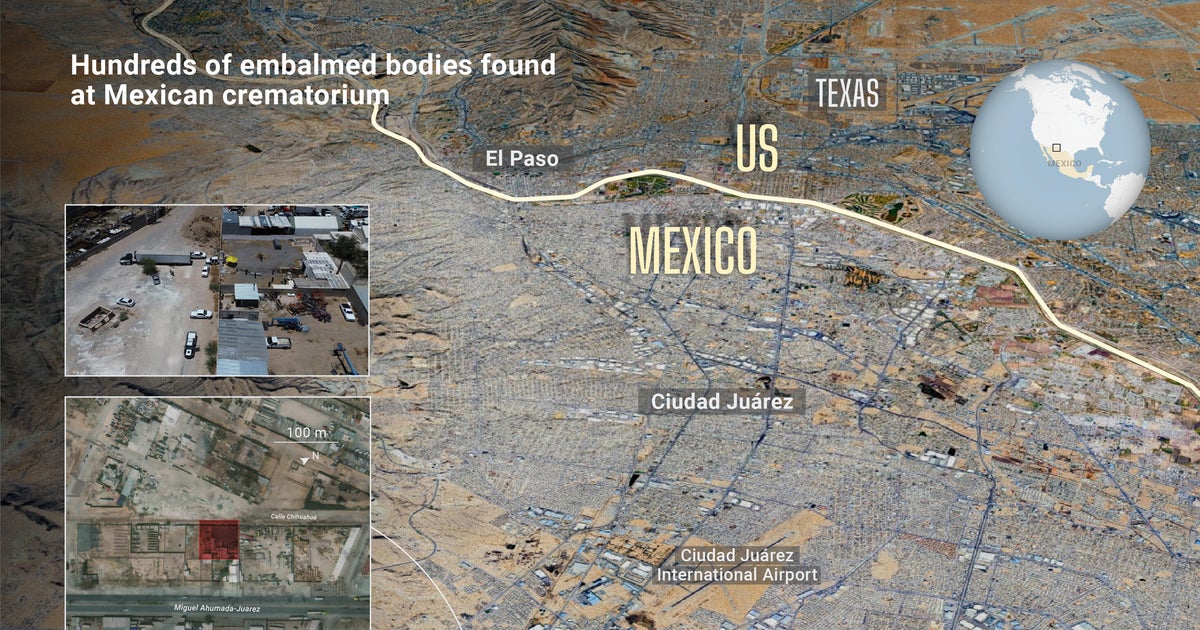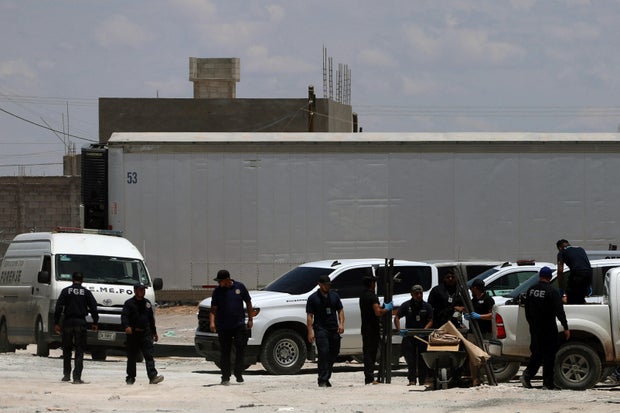Two people have been arrested after police found 383 corpses piled up in a private crematorium in northern Mexico’s Ciudad Juarez near the U.S. border, the local prosecutor’s office said Tuesday, attributing the grisly find to negligence.
The bodies were “deposited irregularly in the crematorium, which were not cremated,” Eloy Garcia, communications coordinator of the Chihuahua state prosecutor’s office, told AFP.
Garcia said the corpses were “stacked” in no apparent order in various rooms of the building where the crematorium operates in the city about 10 miles south of El Paso, Texas.
They were “just thrown like that, indiscriminately, one on top of the other, on the floor,” he said.
All the bodies had been embalmed. Instead of ashes, relatives were given “other material,” Garcia said.
HERIKA MARTINEZ/AFP via Getty Images
Authorities estimated that some of the remains could have been there for up to two years.
Garcia blamed the “carelessness and irresponsibility” of the crematorium owners, adding that all such businesses “know what their daily cremation capacity is.”
“You can’t take in more than you can process,” he said.
State Attorney General César Jáuregui Moreno met with families concerned that their loved ones may be among the bodies recovered from the crematorium, the prosecutor’s office said Tuesday.
“We will seek the highest possible penalty for those responsible,” he said. “We will conduct a thorough investigation, seeking to minimize the re-victimization of families already experiencing this.”
Forensic officials said that of the 383 bodies, 218 are male, 149 female and 16 are currently undetermined.
Mehmet Yaren Bozgun/Anadolu via Getty Images
Authorities did not specify whether the corpses belonged to victims of criminal violence.
Mexico, a country hard hit by organized crime, has been suffering for years from a crisis in its forensic system, saturated by the high number of bodies to be processed, the lack of personnel and budgetary restrictions.
The news of the crematorium arrested was announced just one day after 20 bodies, several of them decapitated, were found on a highway bridge in a part of Mexico where factions of the Sinaloa drug cartel are fighting each other.
Four headless corpses were found by the roadside while 16 bodies were discovered inside an abandoned vehicle, the Sinaloa state prosecutor’s office said. Five human heads were found inside a bag at the scene.
(Except for the headline, this story has not been edited by PostX News and is published from a syndicated feed.)



